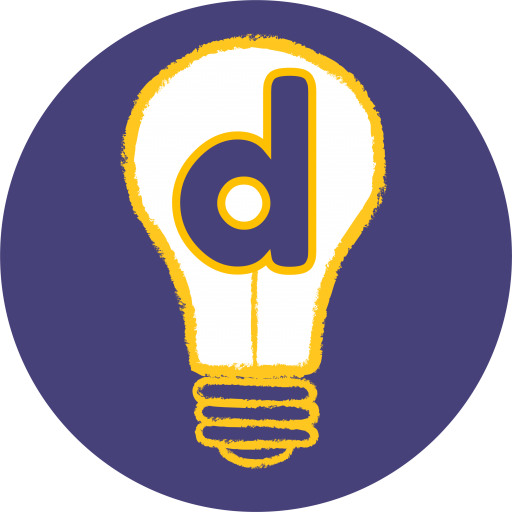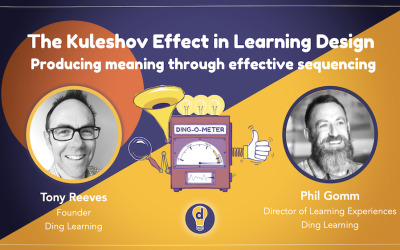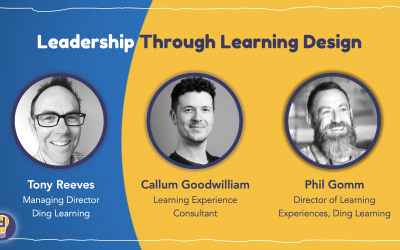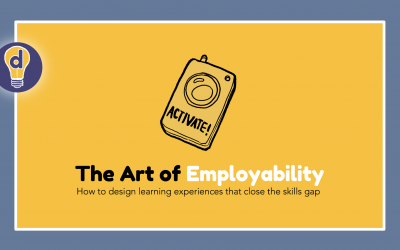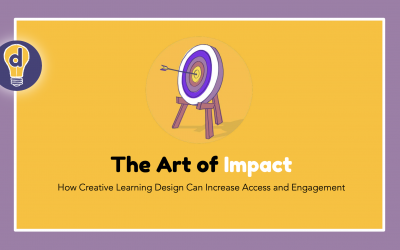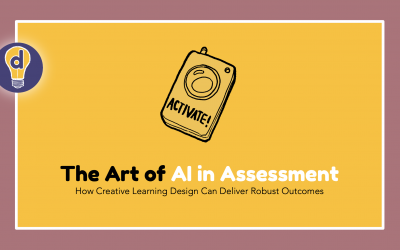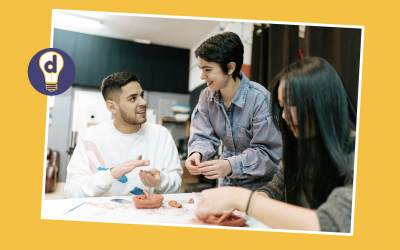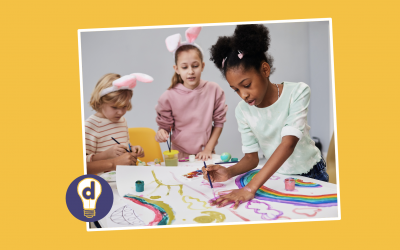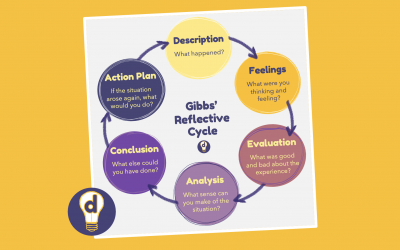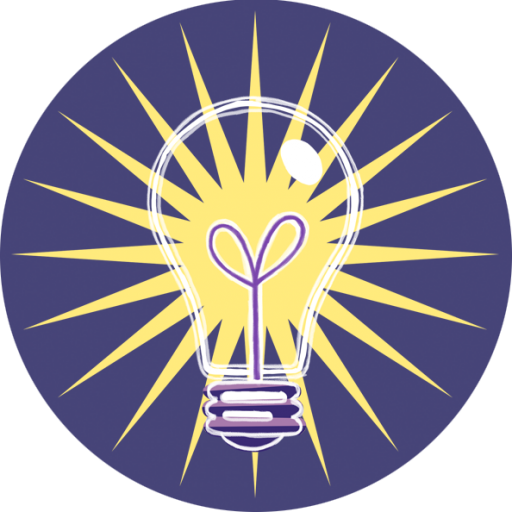tips and tricks for awesome learning design
Getting your casting right
Think about your favourite film or TV show for a moment. Now imagine if all the same words were spoken, but by completely different actors. Wild, right? That's the power of casting – get it right,...
The Kuleshov Effect and why learning designers are editors
In one of our Friday chats, Phil and I recently explored the Kuleshov Effect and its implications for learning design. While Phil is something of a film buff, I’m definitely not – so I spent some...
Open Day: PGCert, PGDip, MA in Creative Teaching and Learning Design
If you want to teach in higher education (HE), you'll need a PGCert. And if you want to work in a professional learning role, you'll benefit from having a PGDip or MA. So we thought we'd make it...
Callum Goodwilliam: Leadership Through Learning Design
The skillset of a learning leader Working in a senior learning role requires a complex set of skills. You need to both understand the needs of the business and also be able to design learning...
The Art of Employability: How To Design Learning Experiences That Close the Skills Gap
When Phil from Ding said, 'I'm fed up with talking about employability,' we thought we'd better do something about how to close the skills gap. So we put our heads together and took a long, hard...
The Art of Impact: How Creative Learning Design Can Increase Access and Engagement
Museums and cultural organisations have to create truly engaging and accessible experiences. But how do you move beyond simply broadcasting information to producing genuine participation and...
Matt Dowling: Preparing graduates to be freelancers
Why graduates need a freelancer mindset Freelancing is increasingly a career option for young professionals. This is partly as a result of the gig economy, but also because it is a natural fit for...
The Art of AI in Assessment: How Creative Learning Design Can Deliver Robust Outcomes
In Ding's recent webinar on the Art of AI in Assessment, we explored how creative learning design can produce more robust outcomes in the age of AI. If you missed it, don't worry - in this blog post...
Artificial intelligence and other boogey men
Everybody Panic! As night follows day, new technologies trigger moral panics. In the 1980s, the “video nasties” controversy erupted in Britain—as home video allowed unprecedented access to scary...
Leaving HE? You have more skills than you think
‘A shrinkage is taking place,’ says Ding! co-founder Phil Gomm. Then, warming to his theme: ‘There’s an extinction event going on.’ And if, as he suggests, ‘you look at all the reports and if you...
How to (actually) widen participation in higher education
‘It’s not enough’, says John Blake, ‘that learners from underrepresented groups can get into college and university – access is about successful higher education, not just any higher education’...
Increasing belonging through course design
Increasing belonging is now a priority in both education and business. ‘Belonging’, says Tony Bond (2022), ‘is one of the biggest buzzwords in business today.’ And he goes on, ‘It’s about time.’ He...
How slow looking improves learning
‘Slow looking?’ you say. ‘Are you mad? There’s no time for that kind of thing in my practice.’ And you remember the Carrie Fisher quip: ‘Instant gratification takes too long.’ Actually, there are...
Designing learning for ADHD adults
'People with ADHD are often highly creative, determined, and able to tackle large and complex problems.' Colley (2009). AI is ‘the perfect partner for ADHD creativity’, says coach Andrew Lewis,...
Designing learning for the future of work
When someone has done a lot of research into the future of work, it's worth listening. At the OEB 2023 conference in Berlin, I was fortunate to attend a presentation by Hartwin Mass – a researcher...
Marisa Knowles: Designing learning to fit a company’s culture and values
When you're designing a corporate training experience, it's much more likely to be effective if employees perceive it as coming from within the existing culture of the business. This can be...
Enabling metacognition with learning design
Metacognition (at its simplest, thinking about thinking) is gaining some ground in primary and secondary outposts; in higher education and the workplace, you may draw a blank. However, say...
Graham Gibbs and the value of learning by doing
‘Most learners have a wealth of experience to draw on, which, however much lip-service is paid to it, tends to get sadly neglected even in the most carefully designed learning programmes. This is of...
